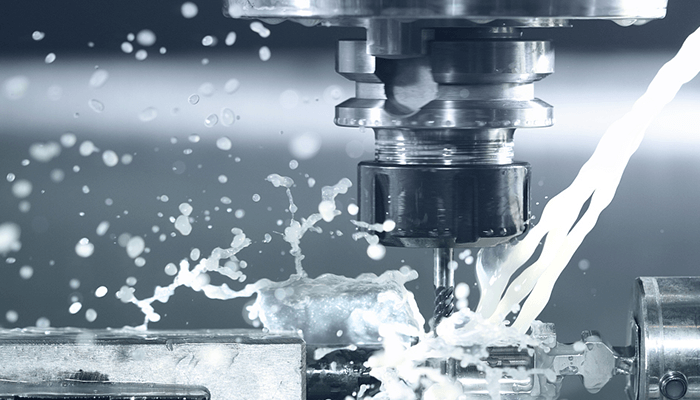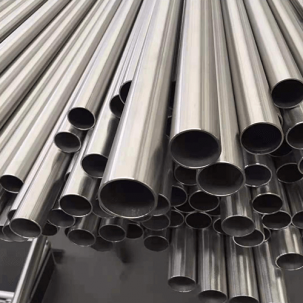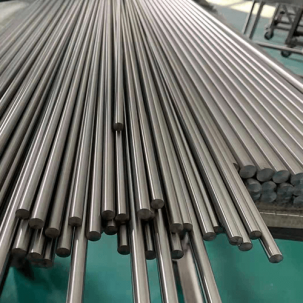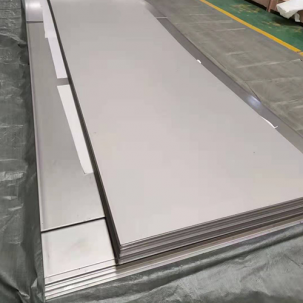Rust can affect the quality, durability, and aesthetic value of machines, vehicles, and construction buildings. You may not know that the rusting process costs us about 1% of the world economy per year, or 800 billion USD if you calculate. Preventing rust formation becomes a very crucial aspect, and yet one of the most effective ways these days is using metals that don’t rust.
And in this post, we’ll check out the top 10 metals that don’t rust and high rust-proofing benefits.
- Stainless steel
- Copper, brass, and bronze (red metal group)
- Galvanized steel
- Corten or weathering steel
- Aluminum
- Platinum
- Silver
- Gold
- Zinc
- Lead
1. Stainless steel
Stainless steel has a strong rust-resistant property due to the presence of high chromium amount in it. The chromium is more reactive to oxygen than iron, so it is oxidized very quickly to form a layer of chromium oxide over the alloy. This layer acts as a shield, preventing further corrosion and further oxidation of the iron underneath.
Depending on the elements of the steel mixture, some Austenitic stainless steel types are more corrosion resistant than others. For example, grade 304 stainless steel with a higher amount of Chromium and Nickel is more durable, anti-rust than grade 410 stainless steel.
2. Copper, brass, and bronze (red metals group)
Red metals like copper, bronze, and brass do not rust because they have a very little iron amount in them. On the other hand, copper can be oxidized and create a greenish patina layer on the surface. Bronze, a mixture of copper and 12%-15% tin, can also become tarnish and have a black-brown coating on it, preventing further corrosion. Brass, an alloy of copper and 40% zinc, does not rust for the same reason too.
3. Galvanized steel
Galvanized steel is a widely-used metal with anti-rust properties, thanks to the Zinc coating over the steel surface.
This kind of metal is a kind of carbon steel that is very likely to rust if one or more layers of zinc are not coated on it.
This Zinc coating has two features.
- First, Zinc is highly reactive to oxygen and it will create a Zinc Oxide layer, protecting the alloy.
- Second, the coating acts as a shield to prevent iron oxidation.
Galvanized steel is possible to rust in harsh conditions, such as acid rain, high coastal moisture, etc.
If galvanized steel comes intact with iron, copper, it will rust faster.
4. Corten or weathering steel
Weathering steel, often trademarked as Corten steel, is a group of low carbon steels with strong corrosion-resistant capacity.
These steel alloys have a very high amount of Chromium (over 21%), Nickel, copper, phosphorus, etc.. forming a reddish patina over the surface, giving it excellent strength to prevent further corrosion over years.
5. Aluminum
Aluminum is one of the most popular used metals that does not rust too.
The reason for that is very simple, Aluminum does not have iron in it. However, Aluminum can be oxidized.
The oxidation creates aluminum oxide, a thin protecting film on the surface of it to protect the pure aluminum underneath.
Because aluminum is very resistant to corrosion and very lightweight, it is the choice for many industrial applications: from aircraft to automobile bodies, from beer cans to food packages.
6. Platinum
Platinum is a noble metal that does not rust as it does not have iron in it.
It is soft, malleable enough to make jewelry, but also very inactive to chemical changes such as discoloration or rusting. Therefore, the Platinum price is very expensive on the market (half-price of gold).
7. Silver
Another pure metal with rust-resistant properties is Silver. While both silver and platinum have a grey look, Silver has a darker, duller appearance. The anti-rust feature of Silver is because it is quite inactive with oxygen. When Silver is oxidized, a very thin layer of Silver Oxide is formed and protects the metal perfectly. Silver is also very expensive, but still cheaper than platinum.
8. Gold
Among all metals, gold is the most resistant to corrosion. It never reacts with oxygen, never discolors, and is very expensive. Pure gold is soft and ductile, therefore it is often alloyed to give it more strength (14K gold, 18K gold,…).
9. Zinc
Zinc does not rust. When Zinc reacts with oxygen, it forms Zinc Oxide which sticks on the surface of the metal.
However, it does corrode and the corrosion rate of Zinc is very slow compared to carbon steel types. After 10 years, Zinc thickness loss is just ⅙ compared to that of carbon steel.
Because of its anti-resistance to atmospheric conditions, Zinc is often used for coating on carbon steels to improve durability.
10. Lead
Lead is also one of the most stable metals that does not rust. However, Lead can be oxidized with a similar mechanism of Zinc.
There is a wide array of applications that are made from Lead. The Romans utilized Lead to create plumbing systems that worked till to date. The old cables are covered by Lead before the invention of rubber, etc.
However, Lead can be highly corroded when both oxygen and carbon dioxide present.
Metals that don’t rust, maybe corrode – another big problem
The above metals do not rust, but many of them have their own form of corrosion depending on surrounding environments.
For example, Aluminum is prone to corrode when used in coastal construction.
Galvanized steel is corrosion-resistant, but scientists found that the corrosion rate of this material in Abu Dhabi is two-fold more than in L.A.
Zinc is very stable at neutral pH, but when the environment pH gets lower or higher, Zinc will corrode in no time.
Which non-rusting metal is the best for your construction?
There are quite many factors you should consider before choosing the best metal for your applications, your purposes, available budget, desired appearance, functional requirements, environmental conditions, etc, will play key roles.
For example, when stressing about the functional benefits of rust-resistant metals:
- Carbon steel: this metal is appreciated by its hardness and strength, therefore carbon steel is typically used in making frameworks, bridges, factory production lines,…
- Aluminum: Aluminum is lightweight, corrosion-resistant, and quite ductile, it has ample applications: making windows, doors, tubes, automobiles, airplanes, food packing, etc.
- Copper: highly resistant, ductile, and malleable, copper is a great metal for tubing (hot/cold water tubbings in buildings, fridge tubbing system)
- Stainless steel: the most popular choice for many industries, thanks to its good price and corrosion resistant benefits.
Eventually, you need to balance among these elements to get the best one for your purpose.
About YUBI Steel
Yubi Steel is one of the best small-quantity metal high-quality suppliers from China. Our expert teams have provided excellent services for many clients since 2010.
At Yubi Steel, we have an extensive list of high-quality alloys that fit every project. Our stocks include stainless steel, carbon steel, aluminum alloys, Nickel, Titanium alloys, metal ingots (Zinc, Tin, Lead, Magnesium, and Aluminum), and red metals like copper, bronze, and brass.
If you are seeking any metal alloy for your projects and you need a professional team to consult, that is where we can help. Contact us today or email us for a price quote.
Frequently Asked Questions about rust-resistant metals
Rust, or iron oxide, is the yellow-brown flakes covering the surface of iron by the oxidation reaction between iron, oxygen, and water (moisture). This is a specific form of corrosion that happens to iron. Therefore, only iron and alloys with iron can be rust.
Corrosion is defined as a natural process to destroy the metals by chemical reactions. The most popular substance causing corrosion is Oxygen. When metals are exposed to oxygen and moisture, they are oxidized and the corrosion process starts.
Galvanizing steel can be considered as the cheapest metal that does not rust. Its price is approximately $650 – $750 per metric ton. Second to Zinc plated steel is stainless steel. For example, a high-grade 304 stainless steel has a price of $999 -$2999 per ton.
As rusting is very annoying and costly, preventing metal from rusting becomes essential. You should keep your metal clean and dry, preventing possible scratches, painting on the surface, or just using anti-rust metals like galvanized steels.
Aluminum gets corrosive very quickly when being exposed to salty water. While the salt does not cause corrosion, it triggers electrochemical reactions to create pitting on the surface. If you want to prevent this from happening, the easiest way is to use powder coating aluminum, which is very resistant to corrosion.
Stainless steel does not rust, but sometimes it can be corroded in harsh conditions: exposure to strong cleaners, salty water, or getting intact with iron.
Final thoughts
Metals that don’t rust is one of the greatest ways to deal with rust.
However, each metal has a different corrosion rate depending on a lot of factors.
To decide which metal is the best for your project, let’s discuss with our experts and make your perfect choice!
Did I miss anything? Let me know in the comments or on LinkedIn.





